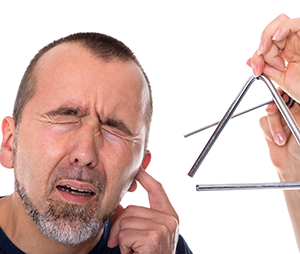How To Tell If You Have a Concussion?
If you are a parent, a team coach, a sports enthusiast, the victim of an accident or a concerned loved one, reading this will help you find out if you should be seeking medical advice for a possible concussion.
In short, you should absolutely be seeking help and you might want to start with this FREE ONLINE CONCUSSION TEST.
However, let’s take a look at “WHY.”
First and foremost you should always take concussions seriously. Concussions are dangerous and potentially life threatening. So, you’re probably wondering how to tell if you have a concussion?
Concussion diagnosis can be tricky. We urge people who are unsure to get a professional diagnosis and if needed, start immediate treatment. If you have any feelings of being “not normal”, you may have had a concussion. Whether your impact occurred today, or two years ago, concussion symptoms should not be taken lightly.
Common signs you may have a concussion include:
- Headache
- Feeling pressure on the head
- Memory loss
- Confusion
- Light sensitivity
- Poor balance
- Sleeplessness
- Tinnitus


Imagine for a moment that you’ve just had a car accident. Your car is demolished, and you’re pretty shaken up. You’re grateful that you’re in one piece and that your not bleeding and you have no broken bones, at least it doesn’t feel like it.
So, after concluding that you’re okay, you get out of the vehicle to deal with the aftermath of the crash. What you may not have realized is that your adrenaline is pumping and keeping you extremely alert in the moment. But this temporary rush of adrenaline is actually masking pain and other symptoms. And typically after the initial shock and adrenaline wears off, symptoms begin to appear. They could be subtle at first, and perhaps not even show up for a few days. Then whoops, something is different. Something in you has changed.

You’re not certain what’s different? Here is a checklist of some of the symptoms of concussion that you should be be aware of:
- Unusual Fatigue
- Unexplained mood swings (high emotions, crying for no reason, irritability)
- Tinnitus – Ringing in the ears or pulsating sensations in the ears
- Nausea or Vomiting
- New sense of Loss of Balance
- Slurred Speech
- Finding it difficult to remember names (sudden loss of access to information you should have)
- Difficulty concentrating
- Sensitivities to light or sound
- Difficulty sleeping
- Lack of interest in your usual activities
- Newly formed vision problems
If you have any of these symptoms, or a combination of several, you will want to seek help from a medical professional immediately. Ask for referral for someone who (like us at the Brain Therapy Clinic) specializes in brain therapy. Seek out experts who are trained in diagnosing brain trauma. Typically that is NOT your general practitioner.
Always seek emergency care if the trauma has caused large head bumps, or bruises. And never hesitate to dial 911 if the person is experiencing seizures, vomiting or you perceive them to be in trouble.
Be proactive with your health. Even if you only suspect a mild concussion, be vigilant about getting this diagnosed properly. You never want to take risks with your brain health, especially children. If your GP is inconclusive about a potential concussion. Push ahead and ask for a referral to Brain Therapy specialist. Don’t hesitate. It’s your right and your duty to be referred to a concussion specialist.
Has your doctor stated “you just need rest?” If your concussion or head injury is not recent you may be suffering with post concussion syndrome. This often occurs months after a concussion that was not treated properly. Most medical diagnostics cannot determine whether you have suffered a concussion. An MRI, although an excellent tool, does not detect functional deficits.
Imagine a school room with a teacher at the front of the room and students at their desks. An MRI can take a picture of the entire room and it shows that the students and teacher are in their designated spots. The MRI, however, cannot show you that the students can’t hear the teacher or talk to each other. This illustrates that although physically your brain is fine, the wired connections and inherent communication within the brain are not working properly.




